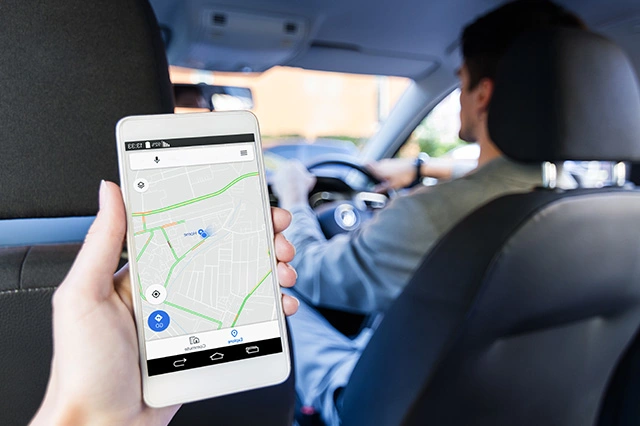Most people assume that a criminal conviction for a motoring offence will affect a driver’s insurance options. Clearly, a motorist that has committed and been convicted of a driving offence represents a greater risk to an insurance company and, at the very least, they will have to pay higher premiums to get insured. But many people are surprised to learn that a criminal conviction for a non-motoring offence will also impact their ability to get car insurance.
Does a criminal conviction preclude a driver from getting insured?
Having a criminal conviction doesn’t automatically mean that you won’t be able to find car insurance, although it’s up to individual insurers whether they will accept applicants with a criminal record. Some insurers operate blanket policies of refusing to insure convicted drivers, but many will at least consider their applications.
However, having a criminal record will mean that getting insured is more expensive and finding a competitive deal won’t be as easy. Numerous specialist insurers have sprung up in recent years, offering convicted/drink driver insurance packages aimed specifically at people who need insurance following a conviction. These packages are similar to those that some insurers offer for drivers with modified cars or those who have only just passed their driving test.
Do convicted drivers have to declare their convictions to insurers?
Insurers will ask applicants whether they have any criminal convictions as part of the application process for car insurance. However, applicants aren’t always legally obligated to disclose a criminal conviction. Whether there’s a legal requirement to tell the insurer about your criminal record will depend on a few factors.
If the conviction is for a motoring offence and occurred within the last five years, you must inform your insurer. Driving convictions are generally considered spent after five years. However, for some offences that are deemed particularly serious, a conviction may never be spent. Unspent convictions always need to be disclosed.
For non-driving offences, the length of time until the conviction is considered spent will vary but will be proportional to the length of the sentence imposed.
As per the Rehabilitation of Offenders Act 1974, you don’t have to disclose a spent conviction, even if you’re asked whether you have any. It is therefore advisable and legal not to tell your insurer about a spent criminal conviction.
What happens if I don’t disclose an unspent criminal conviction?
Failing to disclose an unspent criminal conviction when asked will render a car insurance claim invalid. If you’ve already made a claim against an insurance policy that is then invalidated by your failure to disclose an unspent conviction, insurers can recover any money they’ve paid out to you.
If you are in any doubt as to whether a conviction is spent or not, you can check how long the rehabilitation period lasts on the UK government’s website.
What happens if I’m convicted of a criminal offence while insured?
If you’re convicted of a criminal offence while a car insurance policy is in place, you don’t usually have to tell your insurer. However, when the time comes to renew your policy, you will need to disclose the conviction then. Some policies specifically state that any new convictions need to be disclosed within a certain timeframe. If this is the case, failing to inform your insurer could invalidate your policy.
Do I have to disclose criminal convictions for named drivers?
If someone else will regularly be driving your car, you need to add them to the insurance as a named driver. The same rules apply to named drivers as the main policyholder regarding criminal convictions, so unspent convictions need to be disclosed.
Adding a named driver with a criminal conviction to your policy will affect your insurance costs, regardless of whether the main driver has unspent criminal convictions. It’s also important to note that listing someone with a clean criminal record as the main driver in an attempt to save money on insurance, known as ‘fronting’, is considered fraud and is illegal.
What are the most common driving offences and how do they affect insurance claims?
The impact that driving convictions have on your ability to obtain car insurance vary depending on the offence. Some driving offences have no impact, particularly those that are dealt with by means of a fixed penalty notice. However, others will impact your driving for the rest of your life.
– Speeding: Speeding is the most common driving offence in the UK, according to official statistics. Any driver caught speeding is subject to a minimum fine of £100 and three or more penalty points on their licence. Some police forces offer speed awareness courses for first-time offenders who only exceed the speed limit moderately. Drivers can now attend many of these courses online due to COVID. Most speeding cases result in a fixed penalty notice. This doesn’t count as a conviction, so it doesn’t need to be disclosed to insurers. If you collect to many points, it is likely you will receive a TT99 conviction code. TT99 Insurance will take into account the totting up ban. We can also find banned driver insurance if you have been disqualified at some point.
– Drink-driving: Alcohol-related driving offences are always considered a serious matter and will have a long-term impact on drivers. Most drink-driving offences will need to be declared for five years before they are considered spent. However, more serious incidents can stay on your licence for even longer. For example, the most serious offences, such as causing death by dangerous driving, will remain for 11 years.
– Dangerous driving: A dangerous driving conviction remains on a driver’s licence for four years from the date of conviction. Dangerous driving encompasses numerous individual offences. If you have been convicted of dangerous driving, insurers may require you to install a dashcam or black box in your vehicle. These devices will record data about the way you drive. If you need to make a claim on your policy, your insurer can check the devices to see whether you were driving appropriately at the time of the incident you are claiming for.
Having a criminal record will inevitably affect your options when you apply for car insurance. This is because insurers will view a criminal record for any offence as an indication that you represent a higher level of risk to them, and their terms will reflect this.







